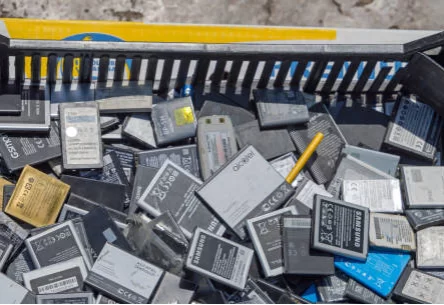The Rise and Impact of Lithium Batteries: How They're Revolutionizing Our World
In today’s tech-savvy world, the phrase “lithium battery used” has become almost ubiquitous. These batteries power everything from our smartphones to electric vehicles, and their role is growing with each passing year. Understanding how lithium batteries are used and their benefits can provide insight into why they are at the forefront of modern technology.

What is a Lithium Battery?
At its core, a lithium battery is a type of rechargeable battery that relies on lithium ions to store and release energy. The term “lithium battery used” typically refers to these advanced batteries due to their high energy density, long lifespan, and rapid charging capabilities. These characteristics make them ideal for a wide range of applications.
Popular Applications of Lithium Batteries
Consumer Electronics
One of the most common uses for lithium batteries is in consumer electronics. Devices like smartphones, tablets, and laptops rely heavily on these batteries. The high energy density of lithium batteries ensures that these devices can operate for longer periods on a single charge. This is why, whenever you look at a smartphone, you’ll likely find the phrase “lithium battery used” in the product specifications.
Electric Vehicles (EVs)
Electric vehicles have become increasingly popular, thanks in large part to lithium batteries. EVs use lithium-ion batteries due to their efficiency and the ability to provide a substantial driving range. The use of lithium batteries in electric vehicles is a game-changer for the automotive industry, leading to more sustainable transportation options.
Renewable Energy Storage
The push for renewable energy sources like solar and wind has led to a greater need for efficient energy storage solutions. Lithium batteries are used to store excess energy generated by these renewable sources. By storing energy when production is high and releasing it when production is low, lithium batteries help to balance the energy supply and make renewable energy more viable.
Medical Devices
In the medical field, lithium batteries are crucial. Devices such as pacemakers, hearing aids, and insulin pumps often use lithium batteries due to their reliability and long life. The phrase “lithium battery used” is common in medical equipment specifications because these batteries ensure that critical devices remain operational for extended periods without frequent replacements.
Power Tools
Lithium batteries have transformed the world of power tools. Cordless drills, saws, and other tools benefit from the lightweight and high energy density of lithium batteries. This means that power tools can be used for longer periods and with greater efficiency, making them a popular choice for both professionals and DIY enthusiasts.
Advantages of Lithium Batteries
The popularity of lithium batteries can be attributed to several key advantages:
- High Energy Density
Lithium batteries offer a higher energy density compared to other battery types. This means they can store more energy in a smaller and lighter package, which is crucial for portable devices and electric vehicles.
Long Lifespan
Lithium batteries generally have a longer lifespan. They can endure more charge and discharge cycles than traditional batteries, which means fewer replacements and lower long-term costs.
Fast Charging
One of the most appreciated features of lithium batteries is their fast charging capability. They can be charged quickly, which is particularly beneficial for devices that are frequently used and need to be recharged often.
Low Self-Discharge
Lithium batteries have a low self-discharge rate, meaning they retain their charge for longer periods when not in use. This makes them ideal for devices that are stored for extended periods or used intermittently.
Challenges and Considerations
While lithium batteries offer many benefits, they also come with some challenges:
- Cost
Lithium batteries can be more expensive upfront compared to other types of batteries. However, their longevity and efficiency often justify the higher initial investment.
Safety
Safety is a concern with lithium batteries, as they can sometimes overheat or, in rare cases, catch fire if damaged or improperly used. It is important to handle and use lithium batteries according to manufacturer instructions to mitigate these risks.
Environmental Impact
The production and disposal of lithium batteries have environmental impacts. Mining for lithium and managing battery disposal can affect the environment. Efforts are ongoing to make the production process more sustainable and improve recycling methods.
The Future of Lithium Batteries
The future of lithium batteries looks promising. Research and development are focused on enhancing battery performance, reducing costs, and addressing environmental concerns. Innovations such as solid-state batteries and advanced recycling techniques are expected to further improve the efficiency and sustainability of lithium batteries.
As we continue to embrace technology and sustainable practices, the role of lithium batteries will become even more significant. They are set to play a crucial part in the ongoing shift towards cleaner energy and smarter technology.
Conclusion
The phrase “lithium battery used” is more than just a technical term; it represents a revolution in energy storage and technology. From powering everyday devices to enabling advances in electric vehicles and renewable energy, lithium batteries are integral to our modern world. Their advantages, despite some challenges, make them a cornerstone of contemporary technology, and their future developments will likely bring even more innovations and improvements. Understanding the role of lithium batteries helps us appreciate their impact and anticipate how they will continue to shape our technological landscape.
